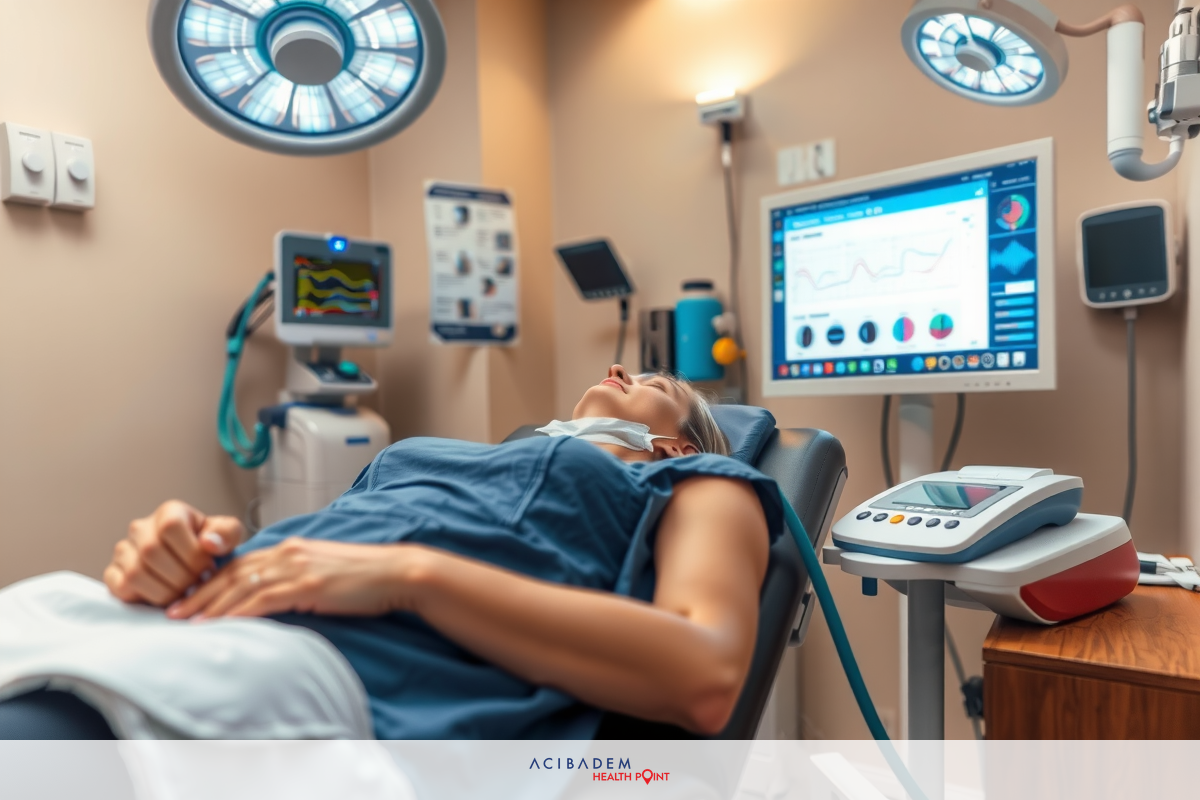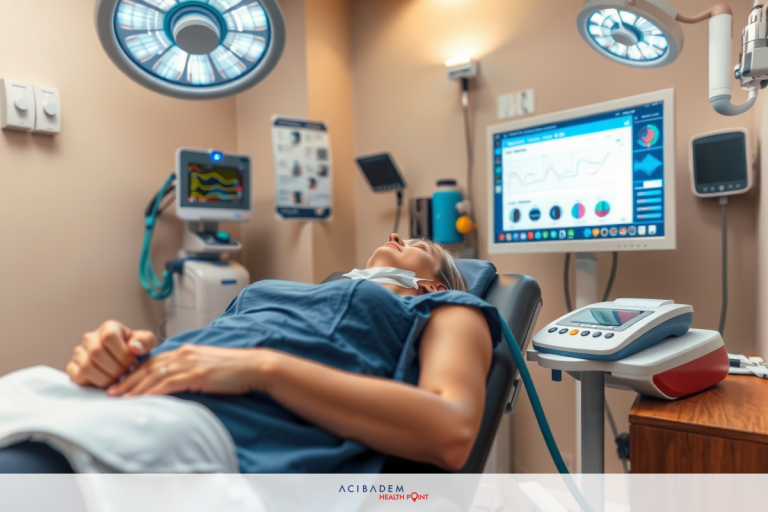Can You Be Put Under Anesthesia for Laser Eye Surgery?
Can You Be Put Under Anesthesia for Laser Eye Surgery? Anxiety can often accompany the prospect of any medical procedure, let alone one involving our precious eyes. The notion of a laser working on this delicate organ could seem daunting to many potential patients. To alleviate such fears and ensure comfort during treatment, anesthesia plays a vital role in laser eye surgery.
The various types of anesthesia available cater to different patient needs and surgical requirements. Some people might be fine with just numbing drops while others may need more profound sedation or even general anesthesia in rare cases. This decision depends largely on the specific type of surgery being performed and individual patient factors like anxiety levels and overall health.
Post-procedure recovery is another critical aspect to consider when discussing anesthetic use in laser eye surgeries. Post-operative care varies based on the type of anesthesia used – some allow for immediate home return while others necessitate observation periods at the clinic.
Types of Anesthesia for Laser Eye Surgery
The world of anesthesia is diverse, allowing a range of options tailored to different surgical procedures and patient needs. In the context of laser eye surgery, it’s crucial to understand that this isn’t a one-size-fits-all scenario. The type of anesthesia used primarily hinges on the specific kind of laser eye procedure being performed and also takes into account individual patient factors.
Local anesthesia is often the preferred choice for many types of laser eye surgeries. Administered through numbing drops or an injection around the eye, it ensures that patients don’t feel any discomfort during the operation while remaining conscious throughout. This method offers several benefits such as quick recovery time and fewer risks compared to other forms.
Conscious sedation presents another option, particularly useful for those who experience heightened anxiety about undergoing surgery. Here, medication helps patients relax or even sleep lightly but doesn’t render them entirely unconscious like general anesthesia would do; thus maintaining a safer profile especially in outpatient settings like most eye clinics.
In some rare cases – typically involving more complex procedures or special circumstances – general anesthesia may be employed in ophthalmic surgeries too. However, due to its heavier toll on the body and longer recovery period post-surgery, it’s not commonly chosen for standard laser vision correction procedures such as LASIK or PRK.
Every case is unique! It’s imperative you discuss your concerns with your doctor before opting for any particular form of anesthesia prior to undergoing your own journey towards clearer vision via laser eye surgery.
Benefits of Anesthesia in Laser Eye Surgery
Life unfurls with such clarity when seen through the clear lens of comfort and relaxation, an experience anesthesia aims to replicate during laser eye surgery. The thought of a laser operating on your eyes may evoke feelings of unease or fear; however, thanks to anesthesia, these procedures can be as pain-free as possible.
1. Pain Management: Topmost on the list is pain management. Local anesthesia numbs the area around your eyes ensuring that you don’t feel any sensation during the procedure.
- Comfort: It’s not just about physical discomfort but also about psychological ease. Sedation helps manage anxiety levels allowing patients to relax during surgery.

The image shows a clinical setting, possibly a hospital or medical office. A patient is lying face up on an examination table, suggesting that they may be receiving a checkup or treatment. - Smooth Procedure: Proper usage of anesthesia ensures a smoother surgical process by preventing involuntary movements due to pain or discomfort which could potentially interfere with the precision needed for optimal outcomes in laser eye surgeries.
- Better Post-Operative Experience: With effective use of anesthesia, post-operative recovery often tends itself to being less painful leading to an overall improved patient experience following their visit to the eye clinic.
- Customizable Options: Different types of anesthesia cater towards different needs giving patients and doctors alike more flexibility in crafting individualized treatment plans based upon unique personal factors and specific operative requirements.
Anesthesia plays a pivotal role in making laser eye surgeries manageable and comfortable experiences for all involved parties – from anxious first-timers stepping into an unfamiliar world at their local eye clinic right down to seasoned ophthalmologists aiming for perfection every single time they wield their lasers!
Recovery After Anesthesia in Laser Eye Surgery
Post-procedure recovery is a crucial part of any surgical journey, and laser eye surgery is no different. The type of anesthesia used greatly influences your post-operative experience, so it’s worth understanding what to expect after the procedure. From immediate effects to longer-term care, let’s explore the recovery path following anesthesia during laser eye operations.
Patients who receive local anesthesia often find their recovery swift and straightforward. Since this form doesn’t induce unconsciousness or deep sedation, patients are usually able to leave the clinic shortly after their procedure with minimal lingering effects from the anesthetic itself. There might be temporary vision disturbances due to protective shields placed over operated eyes or residual blurriness from medicated drops – not a cause for alarm but something worthy of note for those planning on driving themselves home post- surgery.
Conscious sedation offers another level in terms of post-anesthetic experiences. While still less impactful than general anesthesia, patients might feel drowsy or mildly disoriented immediately following their operation and would typically require someone else’s assistance in getting safely back home from the clinic. It’s also important that they rest well afterwards allowing their bodies ample time to completely recover from both surgery as well as sedative effects before resuming normal activities.
In rare instances where general anesthesia is employed for complex ophthalmic surgeries, post-operative care becomes more detailed owing to its nature which renders patients entirely unconscious during treatment sessions at hand thus demanding stricter follow-up measures once consciousness returns. Initial hours may necessitate close monitoring by medical staff until vital signs stabilize while subsequent days could see potential side-effects like nausea or muscle weakness gradually fading away under proper management strategies laid out by treating physicians.
Individual responses vary widely hence these descriptions serve merely as broad guidelines rather than person-specific predictions! Always consult directly with your healthcare team about what you can personally anticipate regarding recovery following anesthesia usage in your own laser eye surgery experience.
Frequently Asked Questions
Can I undergo laser eye surgery without anesthesia?
Theoretically, yes, but it's highly discouraged. Anesthesia ensures not only your comfort but also the smooth operation of the procedure by preventing involuntary movements due to pain or discomfort.
What type of anesthesia is typically used for laser eye surgeries?
Most commonly, local anesthesia is used in forms of numbing drops or an injection around the eyes. However, in some cases based on individual needs and specific surgical requirements, sedation or even general anesthesia may be employed.
How long does it take to recover from the effects of anesthesia post-laser eye surgery?
Recovery times can vary depending upon the type of anesthesia used. Local anesthesia generally has a swift recovery time while conscious sedation might require a day or so for complete recuperation. General anaesthesia often demands more detailed post-operative care and longer recovery periods.
Are there any risks associated with using anesthesia during laser eye surgery?
As with any medical intervention, there are potential risks involved; however these are relatively low especially with local anesthetics and conscious sedation methods commonly employed in ophthalmic procedures such as laser vision correction surgeries.
Please note that these answers are intended solely for informational purposes and do not constitute medical advice. Always consult directly with healthcare professionals about your specific situation.








